Highlines and High Hopes
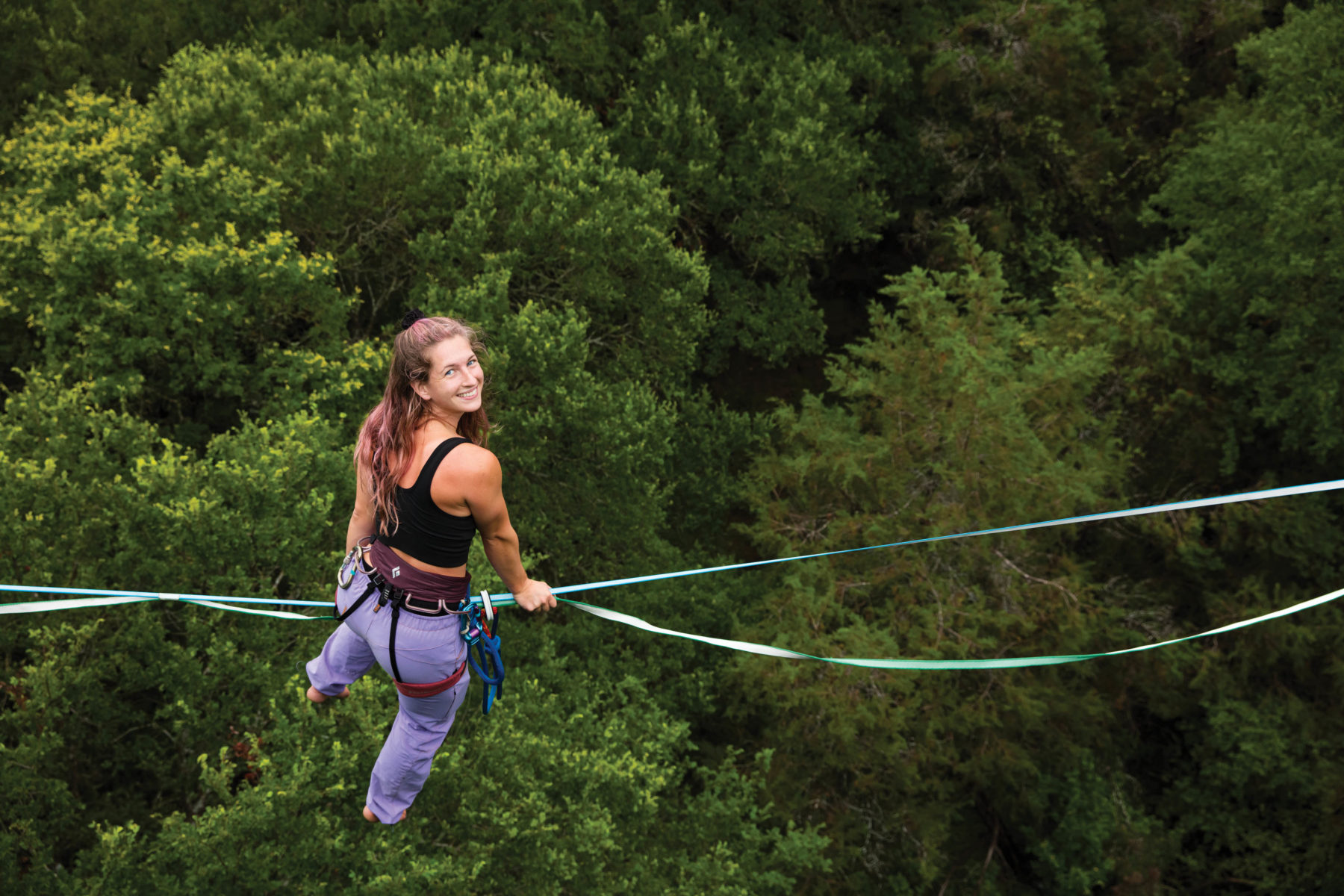
With low-hanging clouds and a summer shower looming overhead, the day’s group calmly works to secure the highline from both ends. Today, it’s a casual gathering of friends and new faces, all people who love the challenge and comradery of taking on new heights – literally. But recently, three of them – Becca Phipps, Taylan Erwin and Emma Zigarovich – have taken slacklining outside the comfort of friends and into the world of activism and empowerment.
They call themselves Meraki Slack, and though their organization is new, it’s already making a difference.
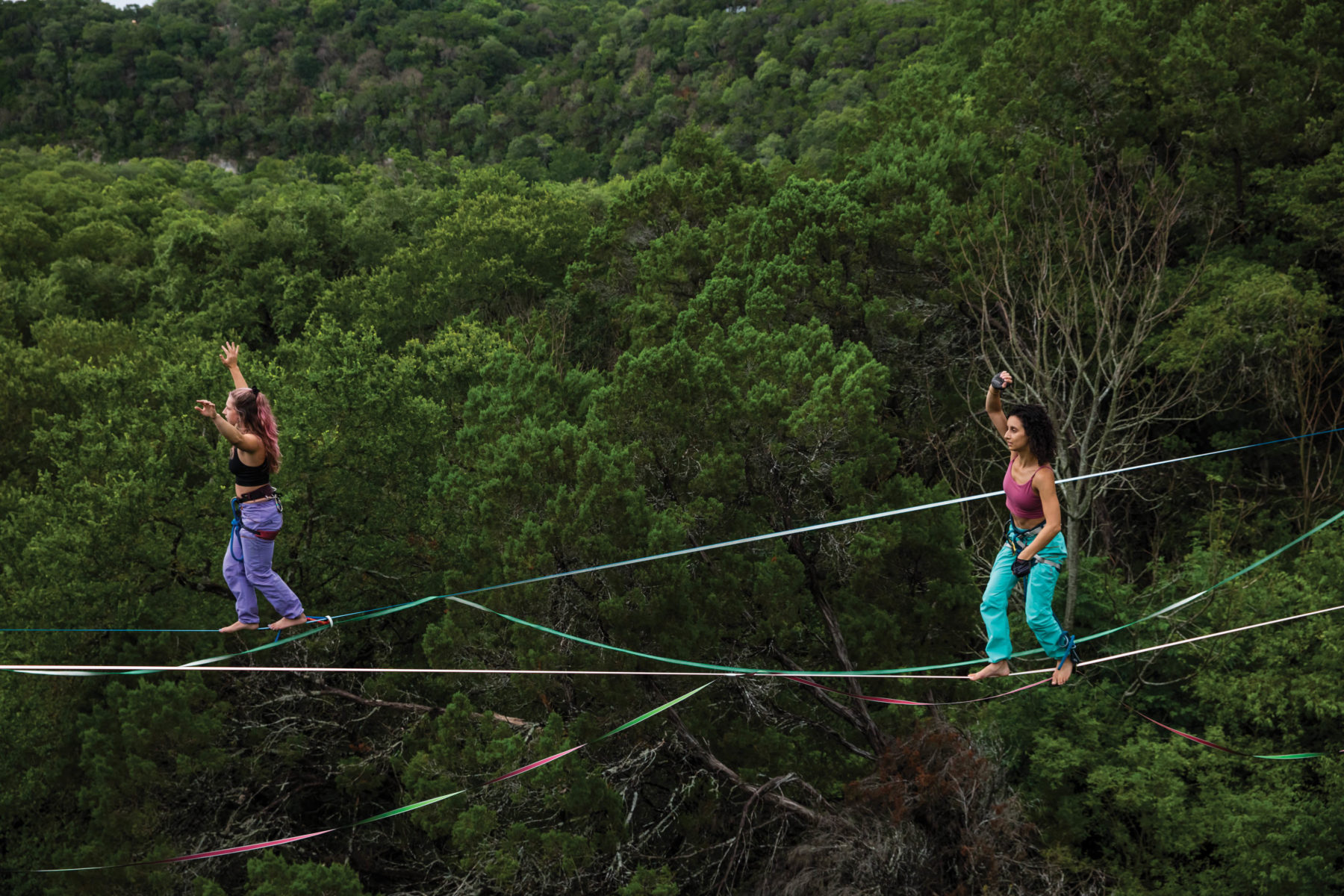
The way most slacklining happens in Austin is casual — with a few friends and word of mouth of a rig going up. On one Facebook page, Austin Slackliners Association, there are all sorts of posts for planning and showcasing the latest slackline meetups around town. Over the course of the pandemic, when Austinites were looking for new ways to experience the safety of the outdoors, that Facebook group and others like it grew rapidly.
“It makes sense that it grew so much during the lockdown, really,” Zigarovich says. “It’s a fun way to spend time outside while still being active.”
But even now after the surge in popularity, the sport still tends to be white male-dominated. Erwin explains that while the community is very welcoming and supportive, it can still be intimidating to newcomers — especially women or marginalized groups.
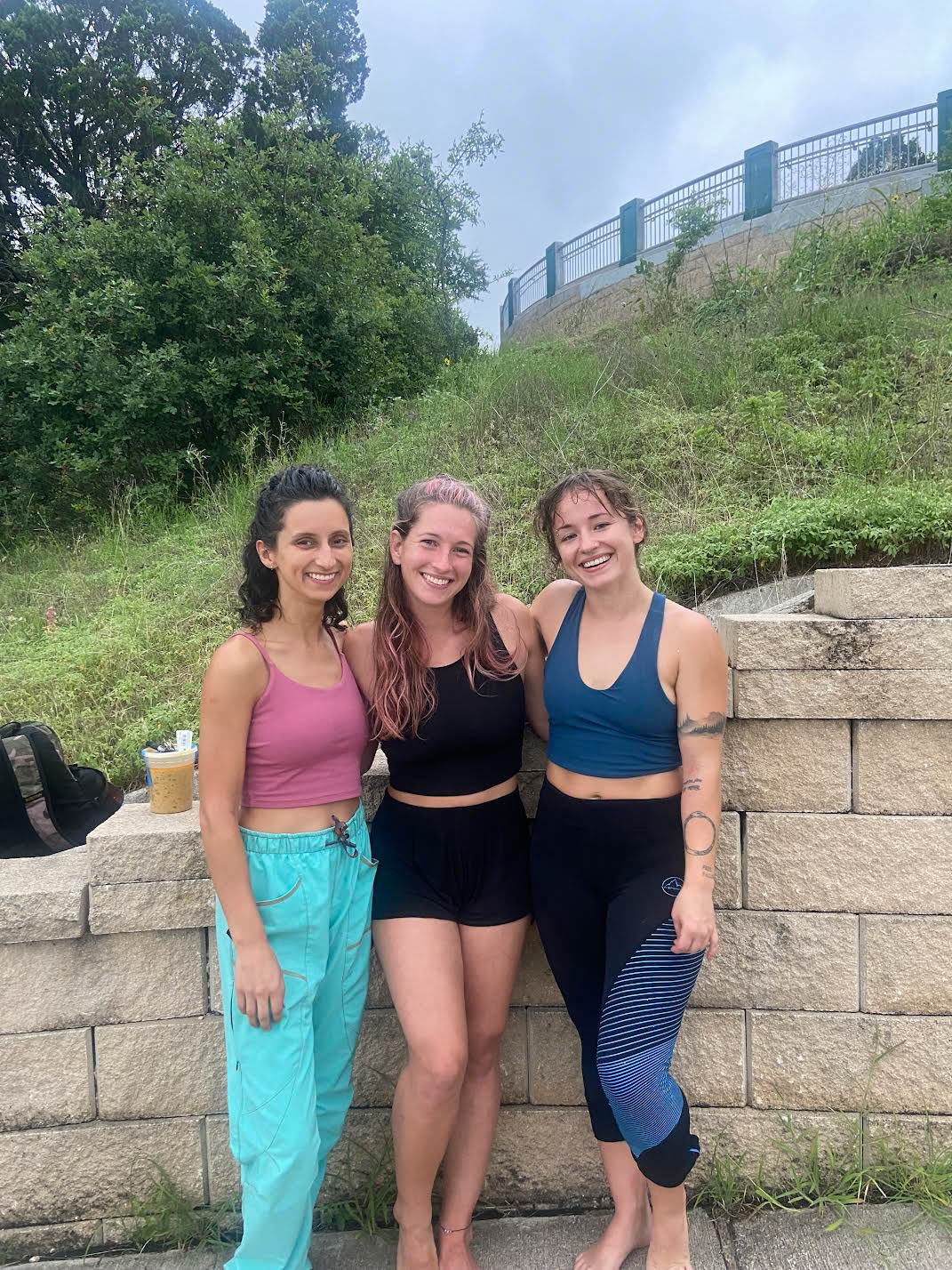
Pictured left to right: Phipps, Zigarovich, and Erwin
“That plus, rigging isn’t something many people take the time to learn how to do,” Erwin explains. “It’s expensive to get the equipment and takes a lot of time to really get it down for safety. So, lots of people would have to rely on someone else setting up a rig for them to use.”
All three of the co-founders started slacklining within the last five years and met at various meetups with introductions through friends-of-friends. But it was this common desire to become independent in the sport through learning how to properly rig that made the three gravitate toward one another. As they began learning together, it didn’t take long before deep friendships were solidified.
Once the three had learned how to rig and started taking slackline-focused trips together, they got to thinking about the ways the sport could be beneficial to a wider range of people.
“We were on the way back from a trip when we started talking more about the idea of Meraki Slack,” Phipps explains. “The idea of making it more accessible, making the lessons it teaches you more accessible — that was the main idea.”
The life lessons and impact from slacklining isn’t just how to walk on tightrope either. Throughout their time within the sport, each of them gained a huge part of themselves. Whether it be creating control, finding self-awareness and confidence or trusting in what the body is capable of, the act of finding balance on a slackline was a welcomed mental and physical challenge.
Zigarovich explains that the name they chose for themselves, “Meraki,” means to put something of yourself into doing what you love. “To do it with all your effort and enthusiasm,” she says. “We all are passionate about this sport, and it has had such a positive impact on our lives that we wanted to share it with others.”
Soon after that initial idea for the organization, an opportunity serendipitously fell into their lap to do just that. In October of 2020, a clinical director at Omega Recovery reached out to Phipps after attending a slacklining meet-up and wanted to know if she could help teach a class of individuals in their recovery program.
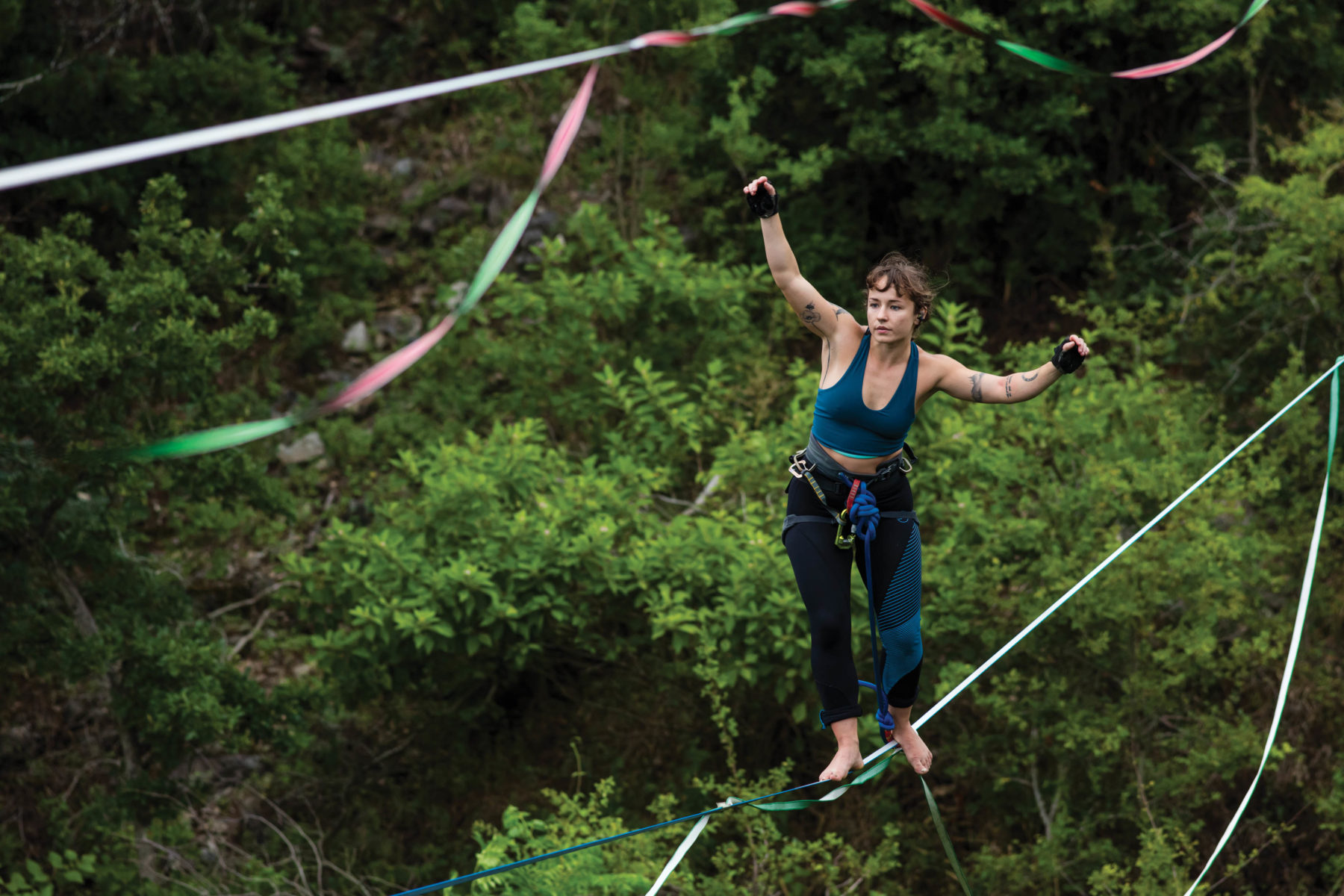
“We got it set up to where three to four times a month we take a group out to a park or outdoor area and set up a slackline and walk them through it all,” Phipps says.
Each of the three has taught classes for the Omega Recovery groups, sometimes together and sometimes trading off. Though the groups vary in what stage of recovery the participants are in, each group is a diverse set of bodies, ages and experience levels. No matter what everyone has been through or what they look like, Erwin says they are able to get up and try something on the slackline.
“Despite being nervous or maybe never having even heard of slacklining before, they were so excited and determined to give it their all. That definitely felt familiar to me,” Erwin says. “It really solidified my belief that anyone can be a slackliner.”
This plays into the mission of Meraki Slack, showing that each person, no matter the limitations, can become a slackliner and reap the benefits of conquering this new challenge. These benefits, the three say, can be seen peeking out after just one session.
Erwin recalls one example in particular. It was during a regular Omega Recovery session, and one participant was obviously a little unsure of the whole thing. The woman was sitting back and watching the others try it instead of joining in. But once the participant finally decided to give it a try, she was all smiles and laughs as the line shook underneath them.
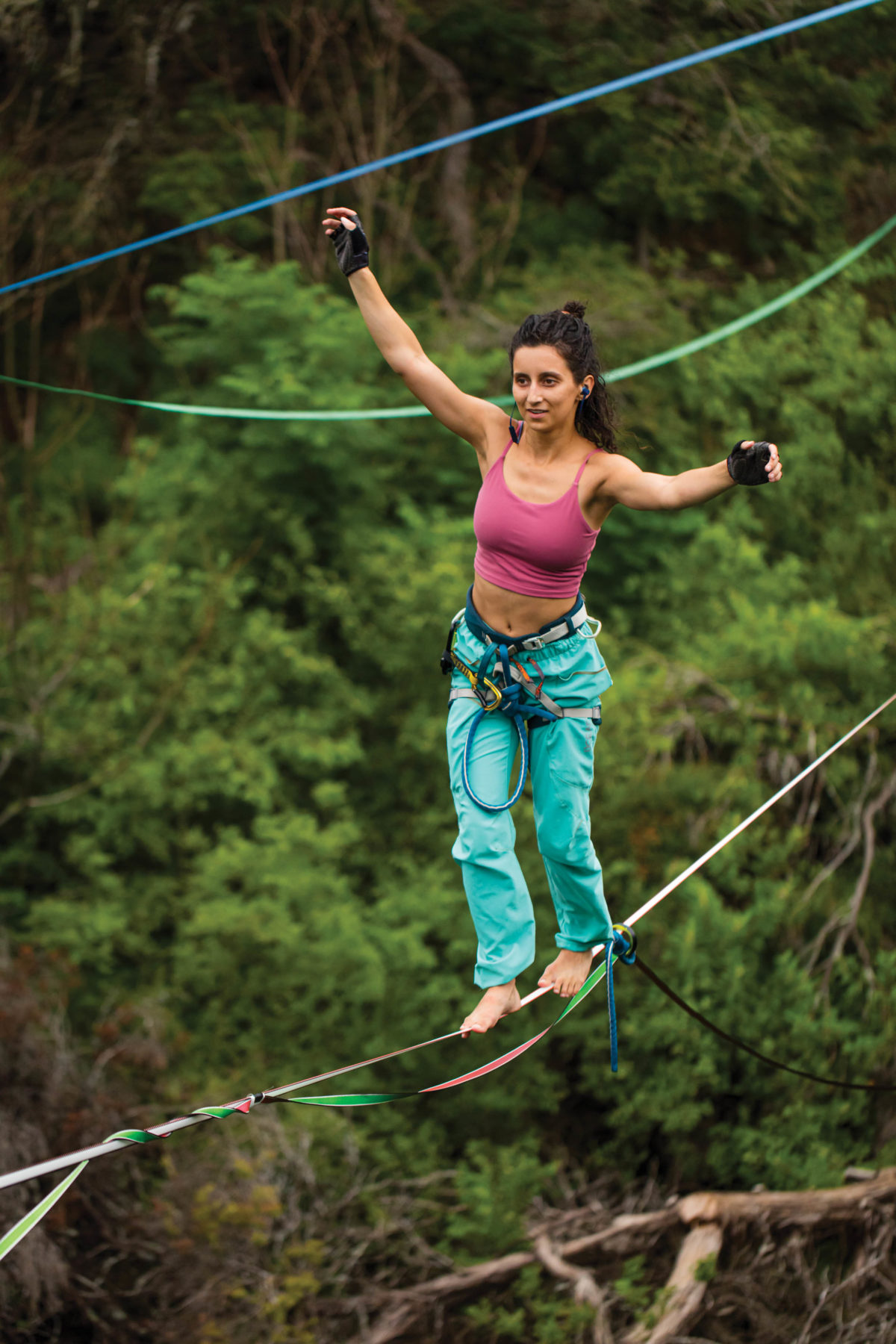
“After she was done, one of the therapists came up to her and said, ‘Wow, that’s the most I’ve seen you smile in weeks!’” Erwin says. “It felt really good being a part of that experience.”
Those little moments of growth, seeing an individual conquer even a small fear or self-doubt, is a big part of why the three do what they do. Now, Meraki Slack has been reaching out to other organizations and non-profits to expand its reach to all different kinds of communities and people. They’ve since worked with Outdoor Afro and have more organizations in the queue.
“There are so many groups we want to work with because the benefits are universal and it shouldn’t just be for one type of person or group,” Phipps says. “Slacklining can be so healing; it’s healed and strengthened each of us. We want to share that with anyone we can.”
Going along with the idea of expanding its outreach to become more inclusive, Meraki Slack is making a national debut of sorts as two of the members move outside of Texas. First, Zigarovich is headed to Colorado, where she plans on making the most out of the slacklining community already there as she creates a new chapter of sorts and begins reaching out to nonprofits in the area. Then, Erwin is taking Meraki on the road once she finishes building out her van.
Erwin says she’s excited for what’s to come for Meraki Slack and the opportunities that might arise in her travels. “I hope it can be a way to impact the places I travel to instead of just passing by.”
Want to get in touch with Meraki Slack? Email them at merakislack@gmail.com






